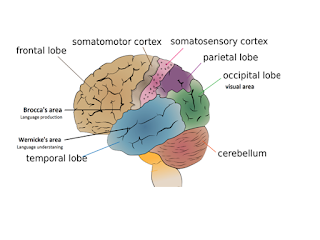AQA A-LEVEL: Issues and Debates - Idiographic and Nomothetic Approach
IDIOGRAPHIC AND NOMOTHETIC APPROACH
Whether psychology should focus on the individual or on people in general
Whether psychology should focus on the individual or on people in general
IDIOGRAPHIC APPROACH
- Attempts to explain the NATURE of individuals. We should be studied as unique entities who have had our own subjective experiences, motivations and values which have contributed to out own individual development.
- Methods under the Idiographic approach tends to produce qualitative data that tries to describe the richness and detail of human experience
- e.g. Interviews, questionnaires and case studies
- The humanistic and Freud section of the psychodynamic are examples of idiographic approach
NOMOTHETIC APPROACH
- Aims to produce GENERAL LAWS of human behaviour which can be used as a benchmark for people to be measured, classified or compared. From these general laws, future behaviour can be predicted or even controlled.
- The Nomothetic Approach has been said by Radford and Kirby (1975) to have produced 3 general laws in psychology
- Classifying people into groups
- Establishing principles of behaviour which can be applied to people in general
- Placing dimensions along which people can be placed, compared or measured
- Methods under the Nomothetic approach are scientific so we gain quantitative data
- The cognitive, biological and learning are examples of the nomothetic approach
EVALUATION OF IDIOGRAPHIC AND NOMOTHETIC
Allows an IN-DEPTH account of an Individual's traits and behaviour
- e.g. Qualitative methods such as interviews allows a more holistic idea of behaviour
Methods such as Case Studies LACK SCIENTIFIC RIGOUR
- Relies heavily on self-subjective interpretation. Conclusions are open to researcher bias so the data may not be objective
Nomothetic Approach is HIGHLY SCIENTIFIC
- Lab experiments use standardised procedures and attempt to control extraneous variables so it's very replicable. Control over variables also increases internal validity so we can establish cause and effect easier.
- Theories based on nomothetic methods have higher scientific credibility
Nomothetic Approaches have PRACTICAL APPLICATIONS
- Because it establishes norms and general laws which allow us to make predictions about future behaviours with the chance of potentially providing treatments such as drugs or CBT
Nomothetic Approach UNDERVALUES INDIVIDUAL EXPERIENCES
- Deviation from the Norm or Statistical Infrequency don't look at individual experiences
- General laws from the Nomothetic approach may lack application when predicting behaviour of individuals
- In order to generalise, the nomothetic approach may overlook the richness of human experience. Human behaviour may be too complex to create general laws.
COMBINATION APPROACH
- Psychologists should consider both the perspectives of the Idiographic and Nomothetic approaches.
- Millon and Davis (1996) - You should start with the Nomothetic approach and once you have general laws switch to an idiographic approach to further develop our understanding and theories.
- We should try to consider individual case studies AND establish general patterns




Comments
Post a Comment